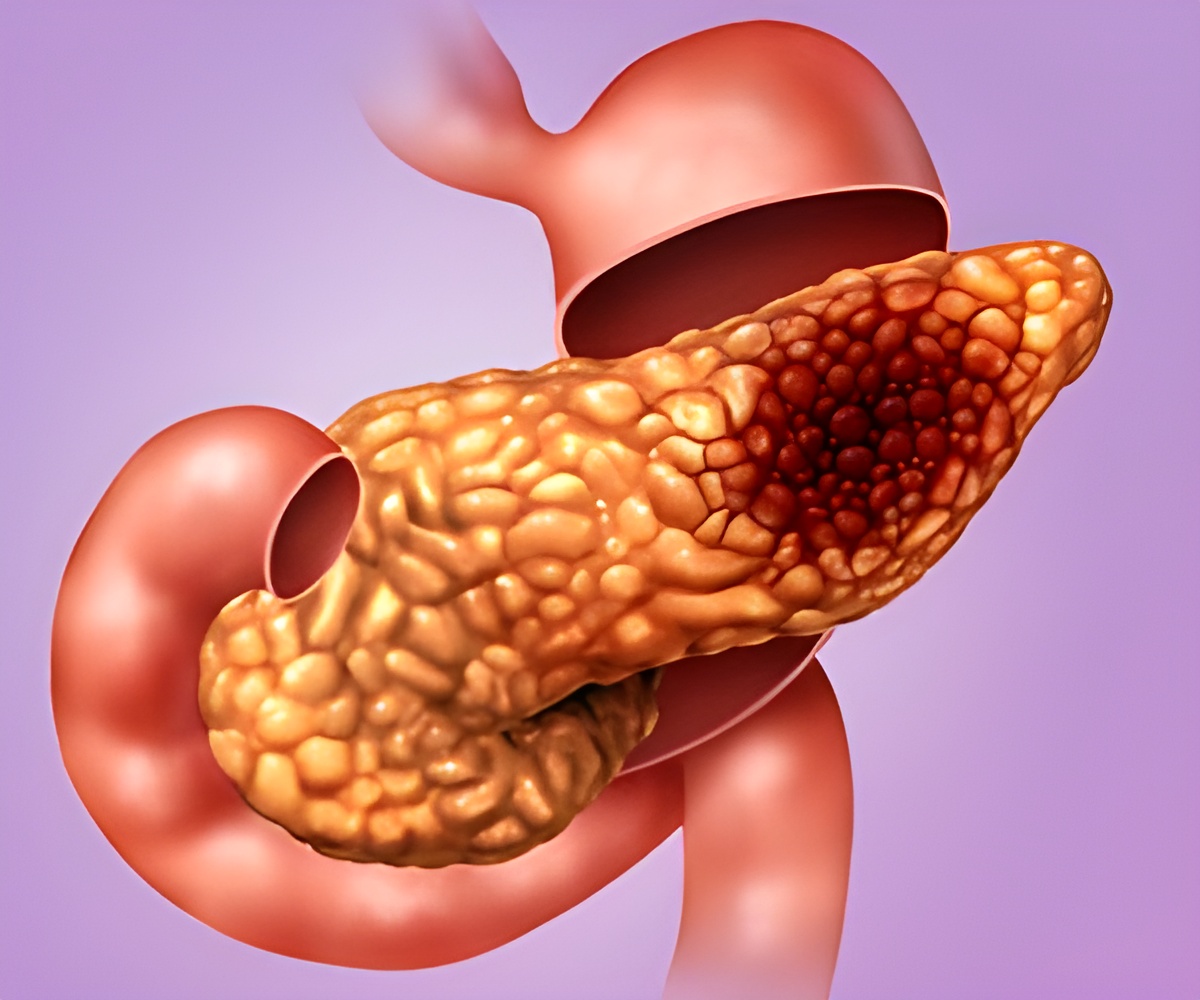UCP-1 gene that helps predict pancreatic cancer development in people with Type 2 diabetes discovered by scientists.

TOP INSIGHT
Developing strategies for the early detection of pancreatic cancer in people without symptoms is critical for improving survival.
"We observed [those] subcutaneous fat levels start decreasing approximately 18 months prior to a pancreatic cancer diagnosis, and coincide with a decrease in body weight and lipids," says Dr. Chari. "Visceral fat and muscle decreased in the last six months prior to a pancreatic cancer diagnosis and coincided with the development of advanced cancer symptoms."
Dr. Chari says the decrease in fat and lipids 18 months prior to a pancreatic diagnosis were reminiscent of the effects of browning of white adipose tissue, a phenomenon found in other cancers. "Brown fat generates body heat, a phenomenon especially prominent in newborn babies but much less so in adults," says Dr. Chari.
Dr. Chari says a specific marker of brown fat is an uncoupling protein called UCP-1. "White fat can be turned brown by turning on certain 'browning' genes, including, UCP-1," he says. "We hypothesized that pancreatic cancer causes browning of subcutaneous fat, and we confirmed our hypothesis in animal, experimental and human studies."
Based on their findings Dr. Chari and his colleagues identified three distinct metabolic phases prior to a diagnosis of pancreatic cancer. Each phase is characterized by the onset of a new metabolic change:
This phase, at 36 to18 months, is characterized by rise in blood glucose levels.
This phase, at eight to six months, is characterized by decreases in lipids and weight, browning of subcutaneous fat and a rise in body temperature.
Phase III
This phase, at six to zero months, is characterized by a further rise in blood glucose levels and body temperature, along with a decrease in lipids; weight; and soft tissues that include subcutaneous fat, visceral fat and muscle.
"Our study has important implications for the early detection of pancreatic cancer," says Dr. Chari. "Along with supporting data from animal and experimental studies, we were able to show that UCP-1 gene levels are markedly increased in patients with pancreatic cancer, compared to controls. We believe UCP-1 can potentially be used as a biomarker to predict pancreatic cancer in high-risk groups, such as patients with new-onset or long-standing diabetes who are unintentionally losing weight."
Dr. Chari's previous research focused on studying patients with new-onset diabetes as a high-risk group for developing pancreatic cancer. As part of this work, Dr. Chari and his colleagues developed and validated a score called Enriching New-Onset Diabetes for Pancreatic Cancer or ENDPAC that stratifies the risk of developing pancreatic among patients with new-onset diabetes.
Source-Eurekalert
 MEDINDIA
MEDINDIA




 Email
Email










